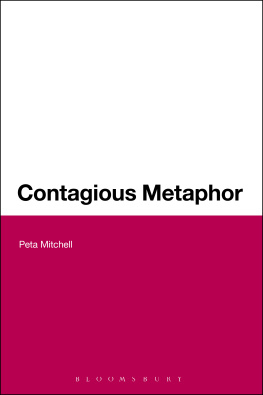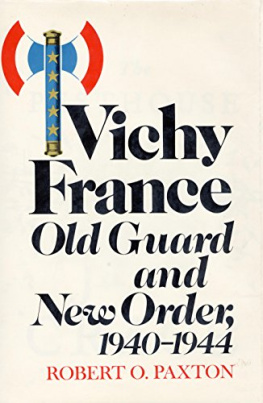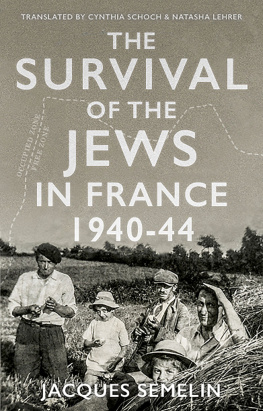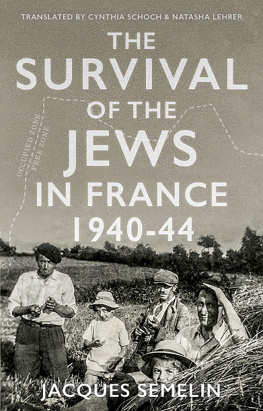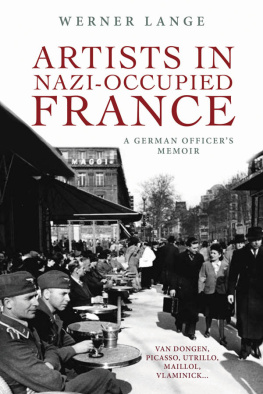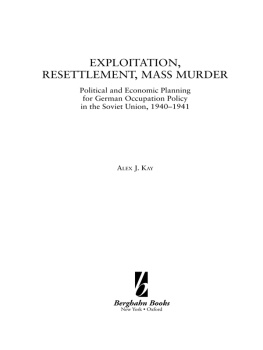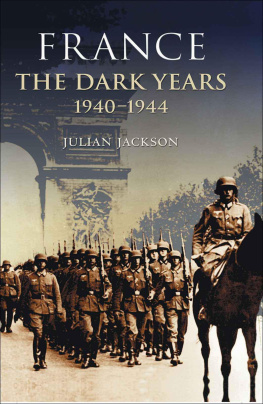NAZI PARIS
The History of an Occupation,
19401944

Allan Mitchell

Published in 2008 by
Berghahn Books
www.berghahnbooks.com
2008, 2010 Allan Mitchell
First paperback edition published in 2010
All rights reserved.
Except for the quotation of short passages
for the purposes of criticism and review, no part of this book
may be reproduced in any form or by any means, electronic or
mechanical, including photocopying, recording, or any information
storage and retrieval system now known or to be invented,
without written permission of the publisher.
Library of Congress Cataloging-in-Publication Data
Mitchell, Allan, 1933
Nazi Paris : the history of an occupation, 19401944 / Allan Mitchell.
p. cm.
Includes bibliographical references and indexes.
ISBN 978-1-84545-451-7 (hbk.)978-1-84545-786-0 (pbk.)
1. Paris (France)History19401944. 2. FranceHistoryGerman occupation, 19401945. I. Title.
D802.F82P37535 2008
944'.3610816dc21
2008020324
British Library Cataloguing in Publication Data
A catalogue record for this book is available from
the British Library.
Printed in the United States on acid-free paper
Photographs are courtesy of the tablissement Cinmatographique et Photographique delArme, Ivry-sur-Seine (EPCA-Ivry), and the Bundesarchiv, Koblenz (BA-Koblenz).
For Catherine and Alexandra
My love is like a red, red rose
CONTENTS

PREFACE

I t cannot be entirely coincidental that this study was researched and written during the American military engagement in Iraq. Even the most reclusive historian cannot ignore the daily association between newspaper headlines and scholarly pursuits. Surely all occupations of an invaded territory by a foreign power share some identifiable mutual characteristics, and the homilies to be drawn from a comparison of them soon become disarmingly simplistic: do not expect the conquered populace to throw flowers; beware of undue reliance on the local police; prepare to be blamed for absolutely everything that goes awry; and so forth.
Yet I have kept clearly in view that Paris is not Baghdad, and certainly that the 1940s had little in common with the initial decade of the twenty-first century. The evidence has therefore in no way been trimmed to support easyand often misleadinggeneralizations. Sufficient unto the day is the evil thereof. Unavoidably, nonetheless, the vocabulary necessary to describe or analyze events often has much the same resonance. Use of the designation terrorists to identify insurgents was just as common in the four years after 1940 as it would become over six decades later. And, yes, there were in both instances improvised explosive devices, political assassinations, and well-documented incidents of tortureall of which were alternatively justified or condemned in similar terms. Still, the striking differences between then and now, here and there, are profound. One can ignore them only at great peril of distortion. Perhaps what we need to do is found an Institute of Occupation Studies in the hope that our political and military leaders will thereby be encouraged to think twice before embarking on a foreign adventure.
A number of colleagues and friends have offered me advice and encouragement along the way. I want to thank each of the following warmly for their help: Chantal Bamberger, Claude Blay, Karen Bowie, Franois Caron, Alfred Gottwaldt, Peter Hennock, Franois Jacquot, Larry Joseph, Joanne Karpinski, Shawn Kendrick, Annemarie Kleinert, Jrgen Kocka, Stefan Martens, Sylvia Roubaud, Tom Skidmore, and John Sweets. It would be remiss of me not to acknowledge here also the unflagging support of my indulgent editor, Marion Berghahn, head of what she likes to call my Hausverlag.
INTRODUCTION

T he notion of Vichy France is of course a complete misnomer. All of France was never governed from Vichy, and between June 1940 and November 1942 even the Unoccupied Zone south of the demarcation line was not really autonomous. For more than four years Nazi Germany ruled France, and it did so from Paris, which remained as always the heart and soul of the French nation. For the military administrators of the German Occupation, Vichy was a sometimes troublesome but temporary convenience that relieved part of the strain on their inadequate manpower resources. Besides, whenever important business had to be transacted, French ministers could be summoned to the capital.
In framing an investigation of that topic, as is apparent above, I have finally decided to capitalize the word Occupation in reference to the German administration, a practice frequently adopted by French historians of the period. The reader will surely understand that this usage is strictly a literary device to avoid repetition of awkward circumlocutions. By no means does it imply that German authorities in Paris always adopted the same policy or constantly acted in unison. On the contrary, one of the basic themes of this study is necessarily the lack of political harmony and frequent personal clashes among German officials. In many regards, as the evidence will show, the Nazi Occupation was dysfunctional from its outset to its demise.
In recent years, historical treatment of the Second World War in general, as well as occupied France in particular, has undergone a profound and permanent transformation. Many earlier writings were based to a considerable extent on personal memoirs, written or oral, that supplied an invaluable wealth of anecdotal evidence. But the generation of witnessesthose who experienced the events in question as adultshas largely passed away, and their testimony has in any case been amply recorded. Now, much more systematically than was possible before, the documentary record has become available to scholars, who are able to test or flesh out hypotheses and personal impressions of the past. To be specific, in regard to the Occupation, two large guidebooks to the most pertinent archival collections were simultaneously published in the year 2002: one for the holdings of German documents at the Archives Nationales in Paris and another for complementary sources held in the German military archives at Freiburg-im-Breisgau. A search of these materials housed on both sides of the Rhine is henceforth essential for any scholarly investigation of the Occupation.
Such sources need to be supplemented by other repositories, which are indicated in the bibliography of this volume. Obvious and indispensable among them are police files, ministerial papers, and statistical records conserved by the Archives Nationales. Not to be overlooked in Paris as well are the holdings of the Centre de Documentation Juive Contemporaine, valuable not only for light they shed on the fate of French Jews but also for information about the conduct of the Occupation's military administration. On the German side, apart from Freiburg, the main centers of research are now in Berlin, especially at the Foreign Office archives but likewise at the Bundesarchiv, which has consolidated documentation previously scattered during the war at outposts in Potsdam, Merseburg, and Coswig. The Bundesarchiv in Koblenz contains only a few items of direct relevance.
Next page

